Johnny Carsons, via Henry Bushkin, Johnny Carson
|
“Half the marriages end in divorce—and then there are the unhappy ones.” Johnny Carsons, via Henry Bushkin, Johnny Carson Image Credit: Nothing Sacred
0 Comments
“New York is an exciting town where something is happening all the time--most, unsolved.” Johnny Carson, The Tonight Show Image Credit: David O. Selznick's Hollywood
La Côte Basque Los Angeles: "Slim, pass Me the Wrench!"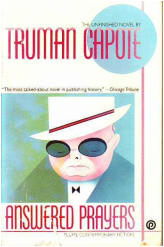 Answered Prayers Answered Prayers “’‘La Côte Basque’ was most certainly not like reading Proust; it was more like a surgeon doing an operation with garage tools. It’s as though Truman, having lost his scalpel and sutures, said, “Pass me the wrench.’” Slim Keith, Slim, Memories of a Rich and Imperfect Life Readers who prefer their fiction with fast-moving plots might be forgiven for overlooking the literary works of Truman Capote. His novels—though brilliantly crafted—lack propulsion. It took the tragic murder of the Clutter family and the execution of their killers to provide Capote with the structure his fiction lacked. Even the unfinished novel Answered Prayers, of which “La Côte Basque, 1965” was a chapter, was more blind item gossip column than component of a novel. Capote hoped this book would brand him as the American Proust. Instead, the serialization of one of its chapters turned him into a pariah, making him as notorious as he was famous—the kiss of death for a serious writer. The stir created by the chapter’s release did have one positive outcome. It gave Capote’s life story a lively third act. Truman’s personal life contained all the drama his fiction lacked: difficult childhood; spectacular rise; misguided betrayal of his friends; and tragic downfall. At its apogee, there is even the most talked-about party of the 20th Century, Capote’s Black and White Ball. Melanie Benjamin takes full advantage of this near-perfect arc in her novel The Swans of Fifth Avenue. Yes, she emphasizes melodrama over style, which was not Truman Capote’s way. Its strength, however, is that it transforms Truman’s legendary Swans from one-dimensional style icons into living, breathing human beings, with all the discordance and occasional ugliness that entails. Ironically, that was just what Capote hoped to accomplish with Answered Prayers. Much of the of destruction "La Côte Basque" wrought is well known: Ann Woodward’s suicide; Slim Keith’s humiliation at being outed as a malicious gossip; and most poignantly, the embarrassment to his closest friend Babe Paley as she battled terminal cancer. The list goes on and on, much of which Benjamin covers in Swans of Fifth Avenue. A betrayal that Benjamin omits, however, is that of Capote’s great friend Joanne Carson and her ex-husband Johnny, the legendary Tonight Show host. One of the secrets of Hollywood was that though Johnny Carson was loved by millions, he was close to very few. As his longtime Tonight Show sidekick Ed McMahon put it, “Johnny Carson packs a tight suitcase. You won’t get in.” His off-screen personality was mercurial and brooding. In person, Johnny lacked the charm that shined so brightly on television. Carson entered Capote’s world when they occupied neighboring apartments at the United Nations Plaza (back when the The Tonight Show was taped in New York). There were frequent storms in Johnny and Joanne’s marriage, and she sought refuge at Truman’s. Capote witnessed firsthand the torment Joanne suffered before finally divorcing the king of late night television. Perhaps Truman included the Johnny Carson character in “La Côte Basque,” to avenge his friend Joanne. After all, protecting Babe was ostensibly his motivation for humiliating Bill Paley in that same chapter. However, in so doing, Capote does not paint an altogether flattering portrait of the friend whom he is supposedly avenging. Johnny is barely disguised as the loathsome television host Bobby Baxter. Joanne is Jane, Bobby’s long-suffering but overbearing wife. From the chapter: Mrs. [Walter] Matthau and Mrs. [Wyatt] Cooper lingered over cafe filtre. “I know,” mused Mrs. Matthau, who was analyzing the wife of a midnight-TV clown/hero, “Jane is pushy: all those telephone calls – Christ, she could dial Answer Prayer and talk an hour. But she’s bright, she’s fast on the draw, and when you think what she has to put up with. This last episode she told me about: hair-raising. Well, Bobby had a week off from the show – he was so exhausted he told Jane he wanted just to stay home, spend the whole week slopping around in his pajamas, and Jane was ecstatic; she bought hundreds of magazines and books and new LP’s and every kind of goody from Maison Glass. Oh, it was going to be a lovely week. Just Jane and Bobby sleeping and screwing and having baked potatoes with caviar for breakfast. But after one day he evaporated. Didn’t come home night or call. It wasn’t the first time, Jesus be, but Jane was out of her mind. Still, she couldn’t report it to the police; what a sensation that would be. Another day passed, and not a word. Jane hadn’t slept for forty-eight hours. Around three in the morning the phone rang. Bobby. Smashed. She said: ‘My God, Bobby, where are you?’ He said he was in Miami, and she said, losing her temper now, how the fuck did you get in Miami, and he said, oh, he’d gone to the airport and taken a plane, and she said what the fuck for, and he said just because he felt like being alone. Jane said: ‘And are you alone?’ Bobby, you know what a sadist he is behind that huckleberry grin, said: ‘No. There’s someone lying right here. She’d like to speak to you.’ And on comes this scared little giggling peroxide voice: ‘Really, is this really Mrs. Baxter, hee hee? I thought Bobby was making a funny, hee hee. We just heard on the radio how it was snowing there in New York – I mean, you ought to be down here with us where it’s ninety degrees!’ Jane said, very chiseled: ‘I’m afraid I’m much too ill to travel.’ And peroxide, all fluttery, distress: ‘Oh, gee, I’m sorry to hear that. What’s the matter, honey?’ Jane said: ‘I’ve got a double dose of syph and the old clap-clap, all courtesy of that great comic, my husband, Bobby Baxter – and if you don’t want the same, I suggest you get the hell out of there.’ And she hung up.” There was really no doubt that Johnny was Truman’s sadist television host with a “huckleberry grin.” Capote admits as much in Lawrence Grobel’s Conversations with Capote, published in 1985: I feel extremely sorry for [Johnny Carson’s] wife. I feel even sorrier for her now. Not this new wife, she’s divorcing him. But his second wife, Joanne. She was very good to him. She did a tremendous amount for Johnny. I don’t think Johnny would have survived or have had remotely the career he’s had if it hadn’t been for her. But he was mean as hell to her. And they lived right next door. He would holler and get terribly angry and she would take refuge in my apartment. She would hide and Johnny would come pounding on the door, shouting, ‘I know she’s in there.’ And I would just maintain a dead silence.” By the time “La Côte Basque” was released in 1975, Joanna and Johnny Carson were divorced and by accident of fate, both living in California. She moved to Los Angeles first, purchasing a Bel Air home just off Sunset Boulevard. It was where Truman Capote would take his last breath in 1984. Johnny relocated not long after, when production of The Tonight Show shifted from New York City to Burbank. This move must have irritated Joanne, particularly when Johnny remarried someone with the confusingly similar name, “Joanna.” It is a detail that sometimes gets the better of fact checkers. [Abrams Publishing makes the mistake on page 196 of Gore Vidal's Snapshots in History's Glare.] The West Coast reaction to “La Côte Basque” was mixed. Carol Matthau, whose name Capote did not even bother to disguise, was the Mrs. Matthau he used to disparage Bobby Baxter (a.k.a. Johnny Carson). She was one of the few society friends who stood by him. Mrs. Matthau’s dinner companion in the piece, Mrs. Wyatt Cooper—née Gloria Vanderbilt, did not. Johnny Carson himself made no public comment, but his response is easily inferred. In the half decade prior to “La Côte Basque,” Truman appeared as a guest on the Tonight Show several times per year. After “La Côte Basque,” he made only more appearance, and that was on an episode Barbara Walters guest hosted. That conciliatory gesture was perhaps impossible for the Tonight Show to avoid, as it was to promote Neil Simon’s Murder by Death in which Capote co-starred. Predictably “La Côte Basque” had no affect on Joanne Carson. She remained steadfast—the one person on whom Capote could always rely. In fact, she stayed true to the legacies of both Truman and Johnny. When asked about “La Côte Basque” by the Los Angeles Times in 2006, Carson demurred, explaining she did not wish to damage her former husband’s reputation. Yet she could not help but add that the blame was hers “for telling Capote the story in the first place.” SOME TANGENTSRIP JOANNE CARSON Joanne Carson died at the age of eight-three in May 2015. In her obituary, the Los Angeles Times noted she was also connected to the reclusive tycoon Howard Hughes. She met him while working as a stewardess at Pan Am, and through Hughes’s recommendation, was given a screen test at RKO Pictures, his movie studio. The New York Times obituary used a divine glamour shot of Johnny and Joanne Carson from a formal event in 1969. It went into surprisingly little detail, minimizing her connection to two of the 20th Century’s most influential personalities. The Daily Mail provided just a brief character sketch but included a generous assortment of period photographs that are well worth the jump. JOANNE CARSON'S UNPUBLISHED MEMOIR Though Truman Capote’s plots were often threadbare, he was an extraordinary wordsmith. Norman Mailer gushed that there was not one sentence he would change in Capote’s novella Breakfast at Tiffany’s. Also, consider Capote’s edits to a memoir Joanne Carson began but never finished in which she writes of falling in love with Johnny Carson: Joanne’s Version: "I wanted to hold on to that moment. To hold on to that feeling, the rush that only being in love can give you, for the rest of my life." Truman’s Rewrite: "If only I could have held that moment, crystallized it, preserved forever that shining feeling, the rush that early love, first love, provides. Thank God it happened. Because I was never again to experience that feeling, that intense satisfaction; never, not quite." THE PRIVATE WORLD OF TRUMAN CAPOTE Joanne Carson completed just that one chapter of her memoir. She called it quits when the Random House editor assigned to her insisted it include the scandalous tidbits one finds in a celebrity tell-all. The manuscript exists in a typewritten form with extensive edits by Capote. It laid dormant for two decades, becoming public knowledge in 2006 when it was included in Bonhams’s “The Private World of Truman Capote,” the sale in which Joanne Carson auctioned off her cache of Truman Capote memorabilia. The brilliance of Capote’s numerous edits reignited the old rumor that Truman extensively revised his childhood friend Harper Lee’s Pulitzer Prize-winning novel To Kill a Mockingbird. LUNCH WITH JOANNE CARSON Joanne Carson and I shared a mutual friend who invited us both for lunch in 2003. She spoke of Truman, Johnny, Babe Paley, and the tremendous excitement leading up to Truman’s Black & White Ball. In the 21st Century, flooded with hundreds of programming alternatives, it is now difficult to imagine the power Johnny Carson wielded in the 1960s when there were only three commercial networks. The Tonight Show had a market share unimaginable today, which Joanne discussed during our lunch. As Mrs. Johnny Carson, Joanne shared his power. The transition to ex-wife must have been difficult. She seemed to have managed it with dignity and devoid of bitterness. For more about Johnny Carson and his heyday on The Tonight Show, check out “Theeeeere’s Johnny!” on the Vanity Fair website. HENRY BUSHKIN'S JOHNNY CARSON MEMOIR In 2013, Carson’s longtime lawyer, fixer, and wingman published Johnny Carson, a frank memoir about the employer who fired him in 1988. His account of the breakup of Johnny and Joanne’s marriage involves Frank Gifford and a .38 revolver concealed on Johnny’s person. His inference is that but for a roll of the dice, the 1960s might have had its own version of O.J. and Nicole Simpson. The book received unenthusiastic reviews from the New York Times and the Washington Post (yet both considered it significant enough to merit a review). JOANNA CARSON, 'E' BEFORE 'A' WHEN PRECEDING 'C' It turned out that the only difference between Johnny's marriages was the exchange of an "e" for an "a" in Joanne. The third Mrs. Carson experienced many of the same difficulties the second Mrs. Carson had. She also divorced him, as noted in this People magazine story. DEATH OF TRUMAN CAPOTE In August 1984, Truman realized his health was failing so he booked a one-way ticket to Los Angeles. He died within a few days of arriving at Joanne's. He refused Joanne's request to call him an ambulance. As he lay dying, he quipped, "Just think of me as going to China. There's no phone or mail service there." GORE VIDAL Though Gore Vidal and Truman Capote had known each other since the 1940s, labeling them “frenemies” would be putting too harmonious of a spin on their acrimonious relationship. When Capote died in Joanne Carson’s home in 1984, Gore penned a wry note of condolence to her ex-husband Johnny. Read more about it in the Nick Harvill Libraries blog post, “Competitive Dying.” The photograph of Aristotle and Jacqueline Onassis at La Côte Basque is from Jacqueline by Ron Galella. The photograph of Johnny and Joanne Carson is from Gore Vidal's Snapshots in History's Glare. The photograph of Truman Capote in the swimming pool and the last snapshot of him were both from the collection of Joanne Carson.
Upon learning of the circumstances surrounding Capote's passing, Gore Vidal, Truman's erstwhile friend and full-time nemesis, thoughtfully sent a condolence note—only not to the bereaved Joanne, but to her ex-husband Johnny. He wrote: “You know, John, I know how upset you must be by Joanne’s publicity coup in having Capote die in her house. Out of friendship to you, I promise I’ll die in yours.” Vidal’s droll promise went unfulfilled. Carson died in 2005, seven years before Vidal passed away in 2012. Via: Truman Capote in which Various Friends, Enemies, Acquaintances, and Detractors Recall His Turbulent Career Photo Credit: Snapshots in History's Glare
"I’m exactly as I appear. There is no warm, lovable person inside. Beneath my cold exterior, once you break the ice, you find cold water." Gore Vidal Photo Credit: Snapshots in History's Glare by Gore Vidal.
|
|

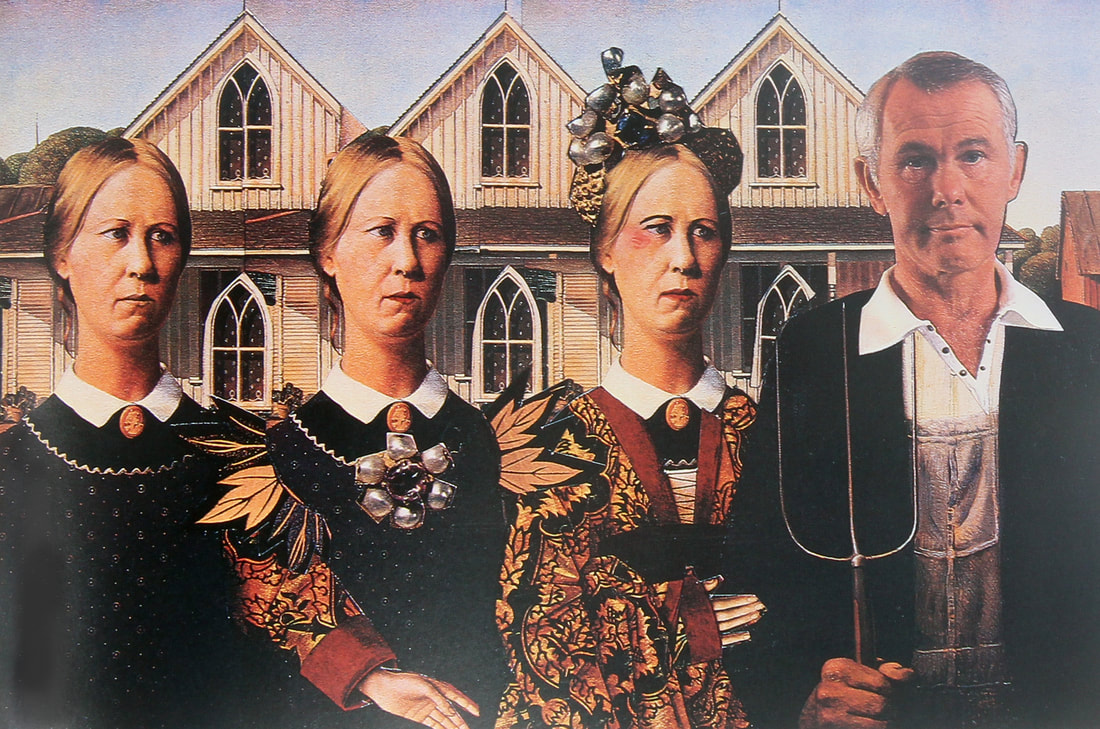
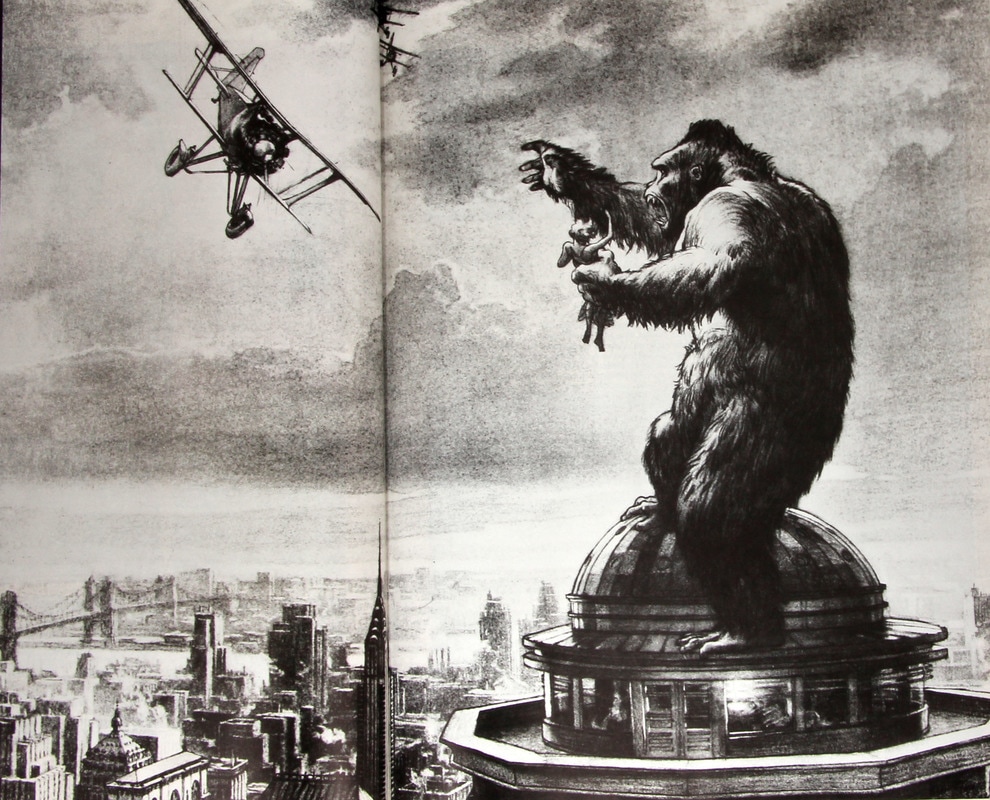
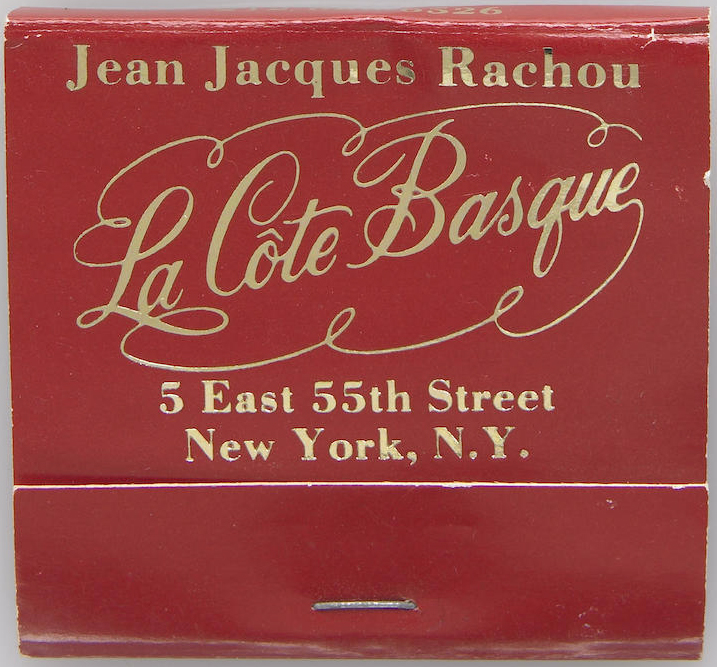
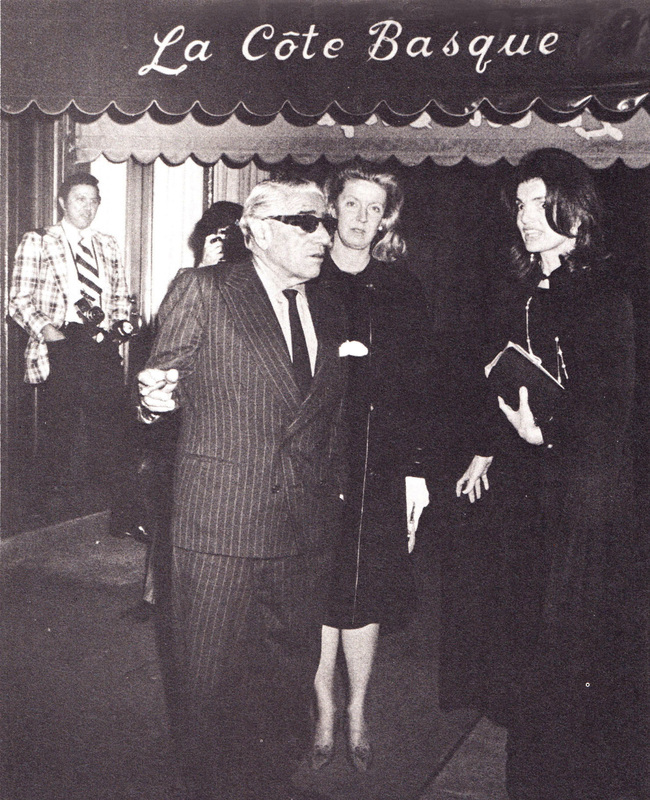
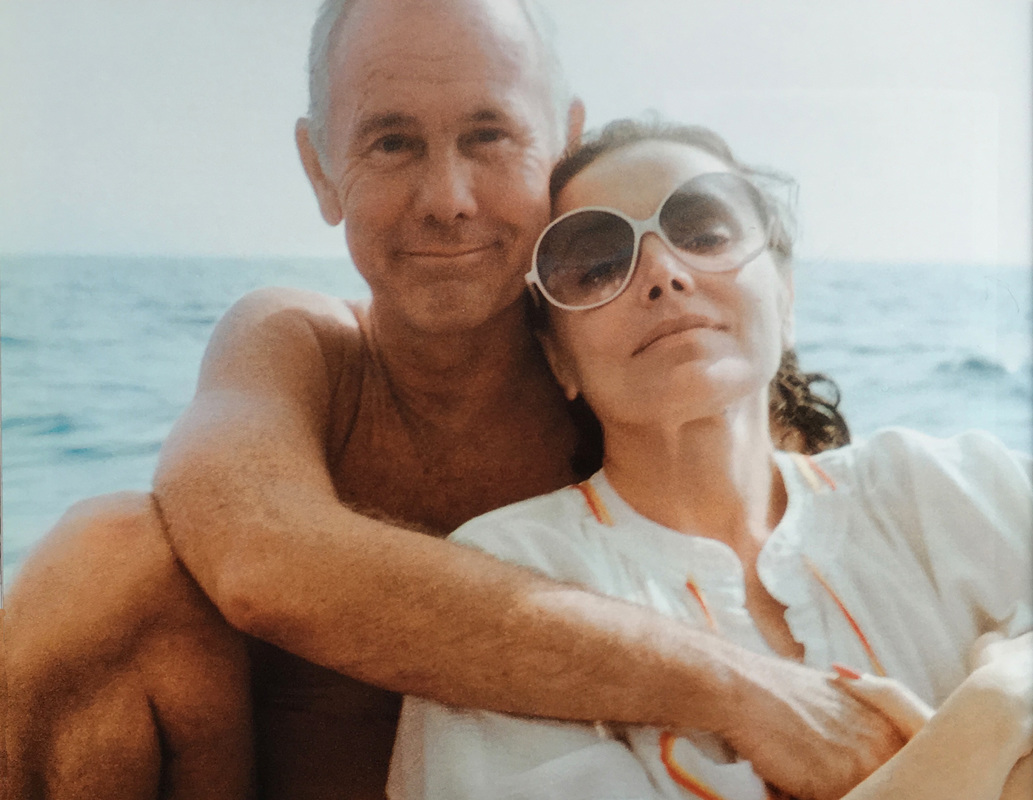
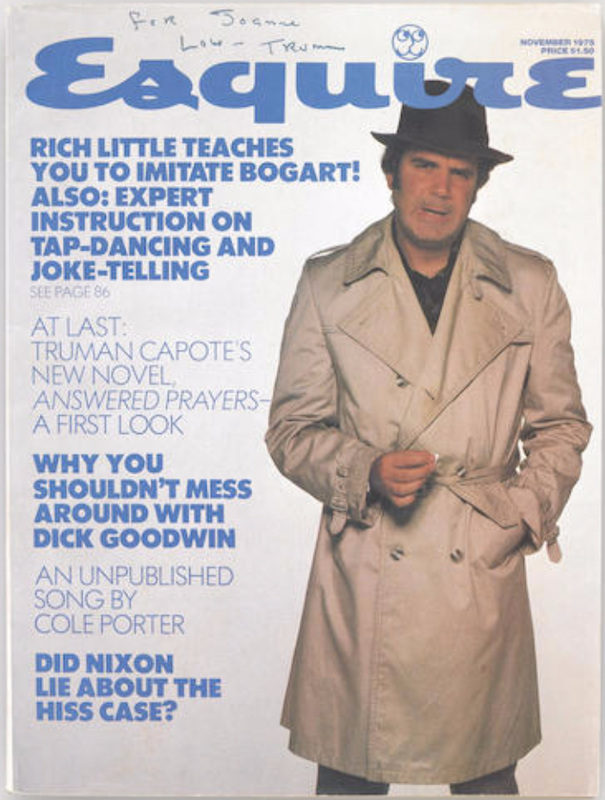
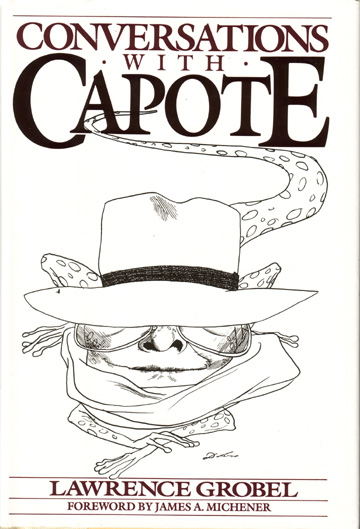
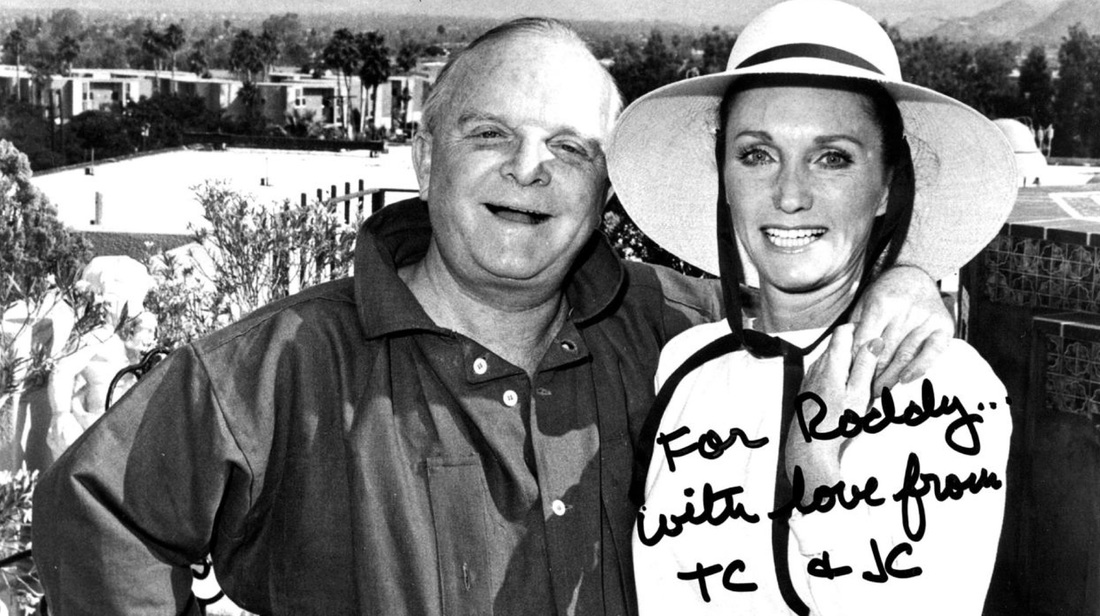
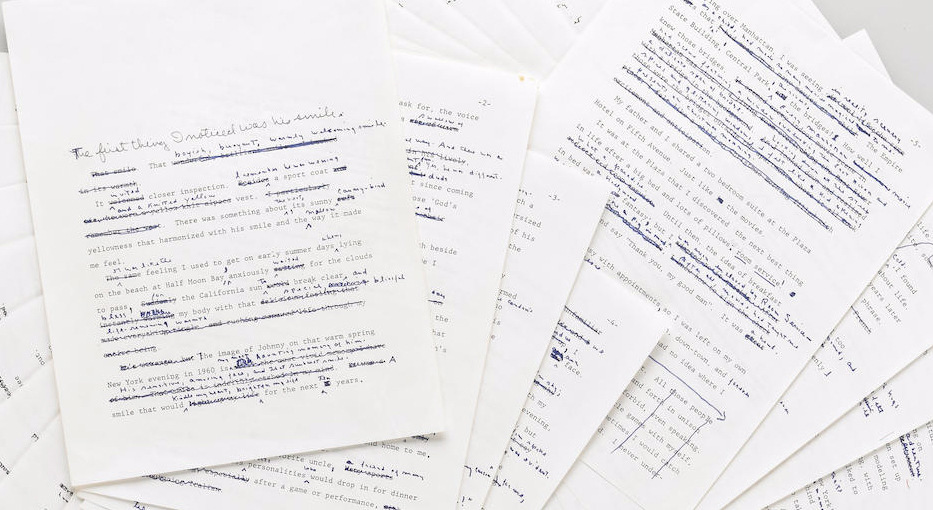
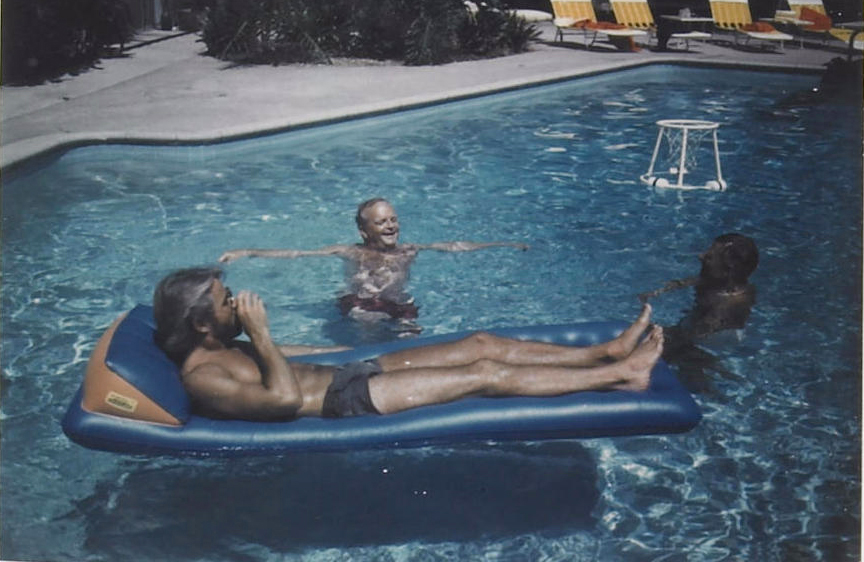
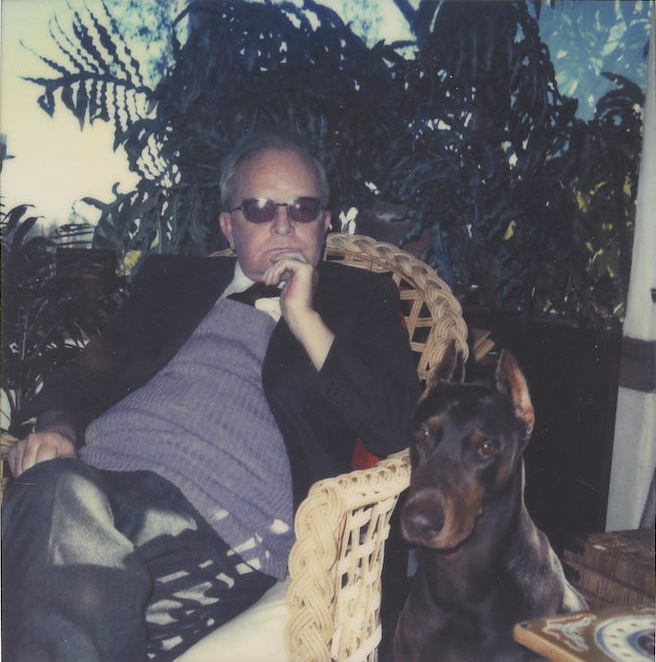
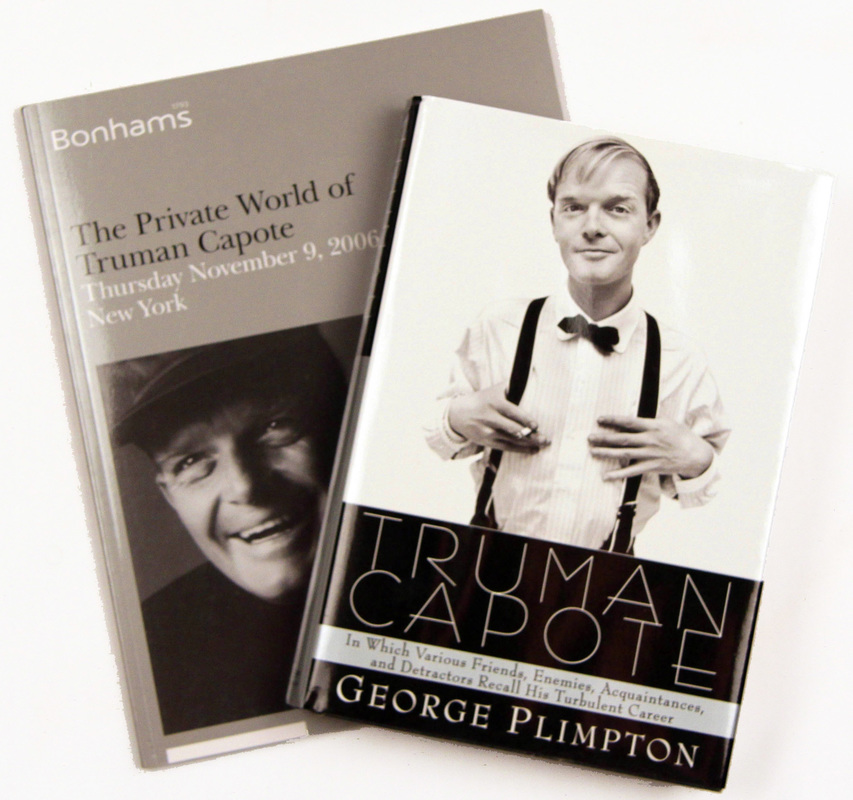
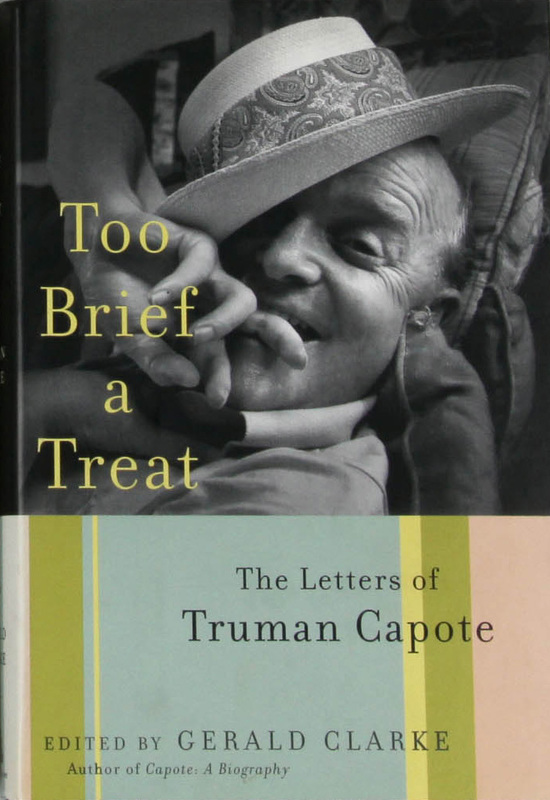
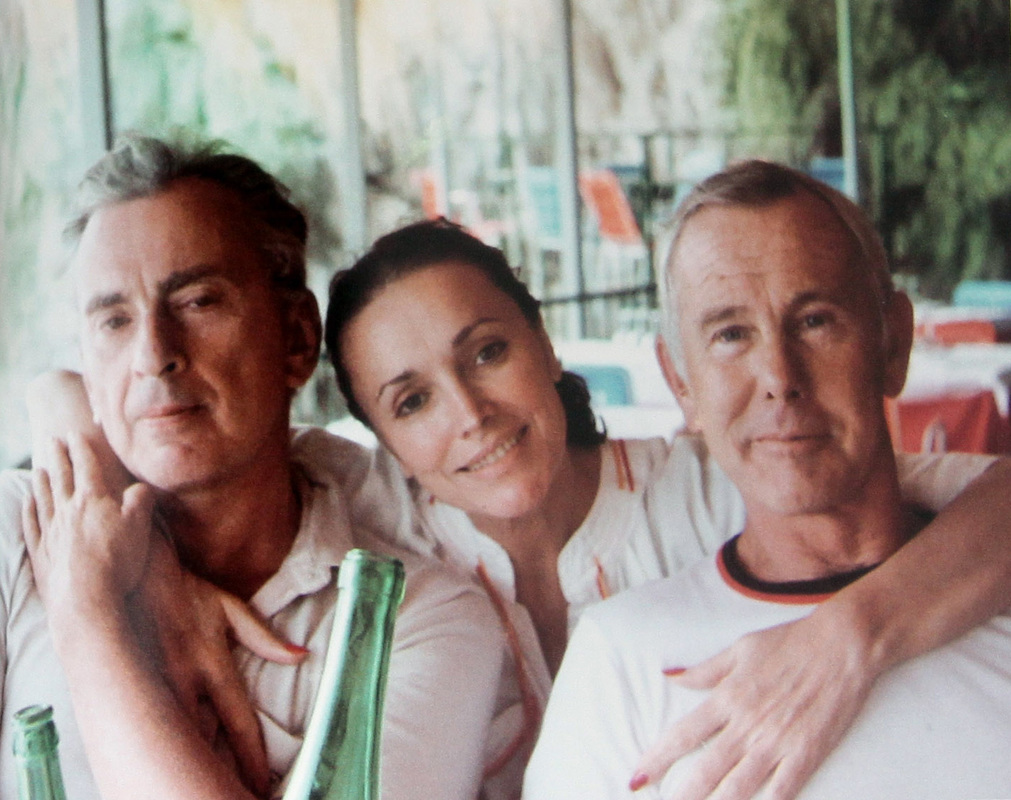
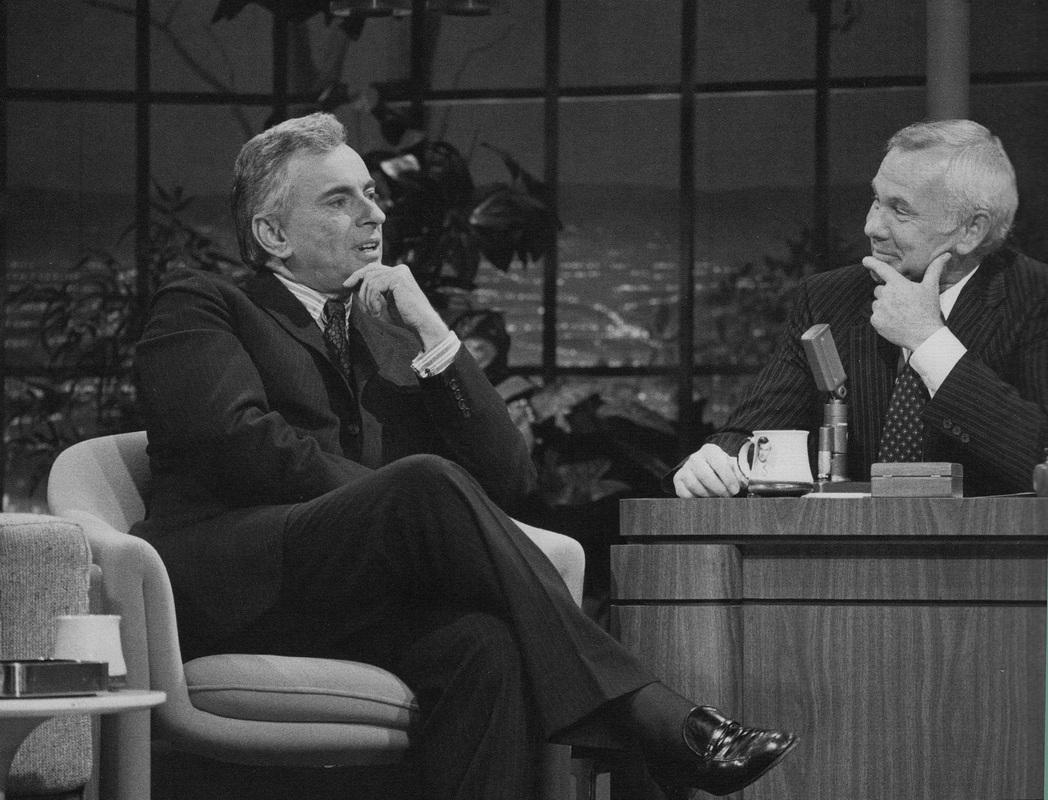
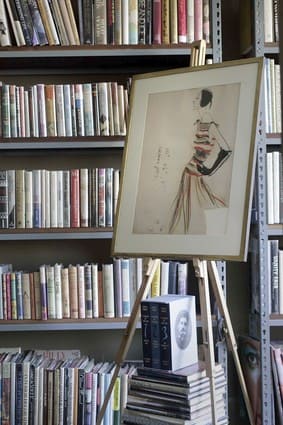
 RSS Feed
RSS Feed